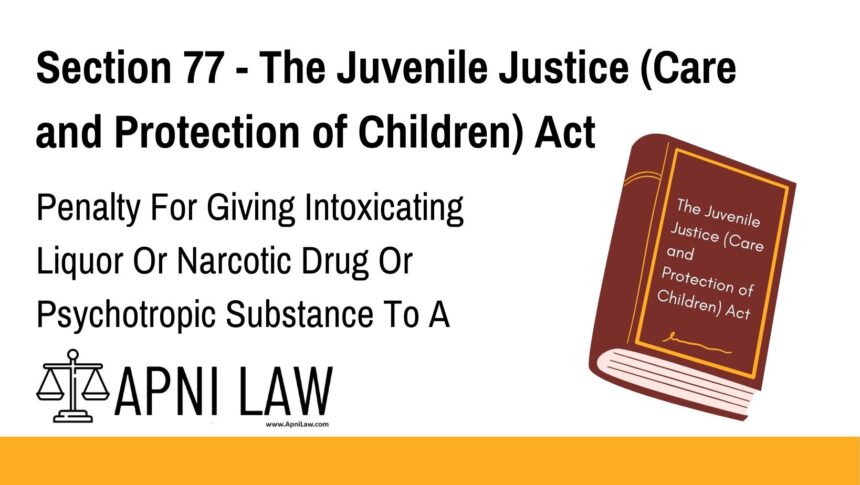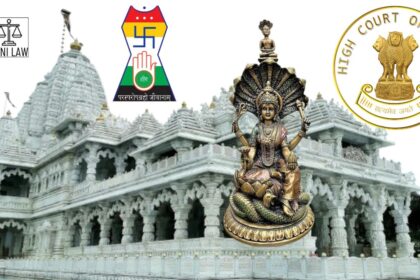Code: Section 77 of the Juvenile Justice Act
77.
Penalty for giving intoxicating liquor or narcotic drug or psychotropic substance to a child.
Whoever gives, or causes to be given, to any child any intoxicating liquor or any narcotic drug or tobacco products or psychotropic substance, except on the order of a duly qualified medical practitioner, shall be punishable with rigorous imprisonment for a term which may extend to seven years and shall also be liable to a fine which may extend up to one lakh rupees.
Explanation of Section 77
Section 77 of The Juvenile Justice (Care and Protection of Children) Act addresses a critical aspect of child protection. It criminalizes the act of providing intoxicating substances like liquor, narcotic drugs, tobacco products, or psychotropic substances to a child. This provision applies except when such substances are administered under the direction of a duly qualified medical practitioner.
The penalty for violating this provision is rigorous imprisonment for a term up to seven years and/or a fine of up to one lakh rupees.
Illustration
Example 1: Illegal Administration of Intoxicating Liquor
A person gives alcoholic beverages to a child, not under any medical supervision or prescription. In this case, the individual is liable for imprisonment and fine under Section 77 of the Juvenile Justice Act.
Example 2: Providing Narcotic Drugs to a Child
A dealer is caught selling narcotic drugs to a minor. The dealer faces a maximum sentence of seven years of rigorous imprisonment along with a fine under this provision.
Common Questions and Answers on Section 77
1. What substances are prohibited under Section 77 from being given to children?
- Answer: The section prohibits the administration of intoxicating liquor, narcotic drugs, tobacco products, or psychotropic substances to a child, except when prescribed by a qualified medical practitioner.
2. What are the penalties for violating Section 77?
- Answer: The penalty includes rigorous imprisonment for up to seven years and a fine that can extend up to one lakh rupees.
3. Can a child receive such substances legally?
- Answer: Yes, but only under the explicit order of a duly qualified medical practitioner for medical purposes.
Conclusion
Section 77 of The Juvenile Justice Act ensures the safety and protection of children from harmful substances like liquor, drugs, and psychotropic substances. It provides strict penalties for individuals who offer such substances to children, underlining the importance of child welfare and protection in society.








